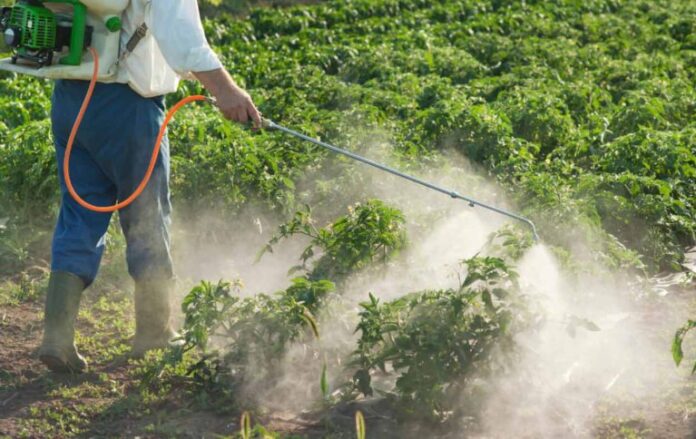Experts task farmers on agrochemicals to boost food productivity
Some agriculture experts have called for less dependence on agrochemicals by local farmers for crop cultivation to boost productivity and promote healthy food.
The experts made the call in separate interviews with the News Agency of Nigeria (NAN) on Sunday in Lagos.
The Deputy Director of the Centre for Food Safety and Agricultural Research, Dr Segun Adebayo, harped on the possibility of increased crop yields without agrochemicals as done in the past.
“It is critical to recognise that agriculture is one of humanity’s oldest industries. Long before synthetic fertilizers and chemical additives, people were already growing food to sustain civilisations.
“So, the question really is: what did they do to preserve the soil and continue producing abundant harvests through the generations?
“One major key was the use of organic matter — compost, green manure, animal droppings — to nourish the soil naturally.
“If you think about it, forests thrive without anyone applying synthetic fertilizers. Why? Because the cycle of organic decomposition replenishes the soil,” Adebayo said.
He noted that adoption of traditional farming systems can help boost crop productivity without depending on agro-chemicals.
“Traditional farming emphasised crop rotation, which not only prevented soil nutrient depletion but also disrupted pest and disease cycles.
“Cover cropping — especially using nitrogen-fixing plants like legumes — helped rejuvenate soils and prevent erosion.
“Today, we can enhance these natural methods with technology. Regular soil testing, for instance, ensures that fertilizers are only used when truly necessary.
“Precision agriculture technologies — like GPS-guided applicators — allow farmers to apply inputs exactly where they are needed, reducing waste and runoff,” the director said.
He also noted that biological alternatives such as bio-fertilisers — microbial inoculants like rhizobia and mycorrhizae boost plant nutrient uptake.
“Practices like agroforestry, polycultures, and mulching also play major roles. These methods rebuild soil health, retain moisture, and encourage biodiversity, creating resilient farming systems.
“Ultimately, sustainable agriculture is not just about methods — it is about education. Farmers must be trained, so that this knowledge lives on and becomes a culture, not just a campaign,” he said.
On his part, Mr. Omotunde Banjoko, agriculture analyst, proffered modalities for less dependence on agro-chemicals.
“For us to reduce over-dependence on fertilisers, we will have to look at our agronomic practices and really go back to simple things, as simple as crop rotation.
“As simple as allowing some of our lands to lie fallow after being used for a period. For the soil to be able to replenish its own nutrients through biological means we must engage crop rotation.
“We will also have to start employing biological means of keeping our soil fertile, a clearing method and the like.
“We can embrace organic farming, it simply means less or no use of chemicals in crop cultivation.
“However, for commercial farming, we must engage the use of technology in crop cultivation to increase productivity,” Banjoko said.






















